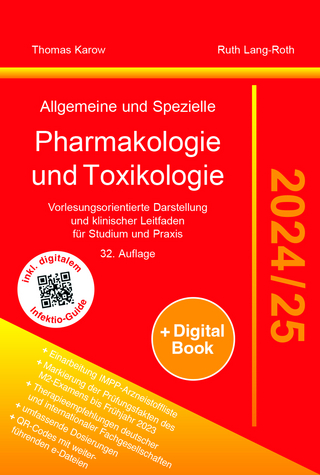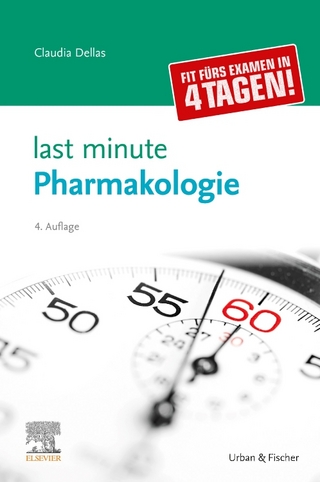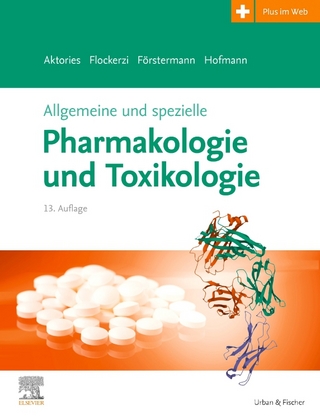
Acetaminophen Toxicity
Academic Press Inc (Verlag)
978-0-443-15877-3 (ISBN)
- Noch nicht erschienen (ca. November 2024)
- Versandkostenfrei
- Auch auf Rechnung
- Artikel merken
Dr. Barry H. Rumack, MD is currently Professor Emeritus of Pediatrics and Emergency Medicine at the University of Colorado School of Medicine, Chairman Emeritus, Micromedex, Inc., and Director Emeritus of the Rocky Mountain Poison Center of the Denver Department of Health & Hospitals, University of Colorado Health Sciences Center. His research interests include Acetaminophen Overdose and General Medical Toxicology. He has published over 250 peer-reviewed articles, authored or edited numerous books and book chapters. He is on the editorial board of a number of journals including Clinical Toxicology, Emergency Medicine, among others. He is a Fellow of the American Academy of Clinical Toxicology, American College of Medical Toxicology, and American Academy of Pediatrics and member of Society of Toxicology, American Association of Poison Control Centers, and American College of Emergency Medicine. Dr. Hartmut Jaeschke, PhD, is the University Distinguished Professor and Chairman of the Department of Pharmacology, Toxicology, and Therapeutics at the University of Kansas Medical Center, Kansas City, Kansas. He joined KUMC in 2006. He is a Fellow of the Academy of Toxicological Sciences and Fellow of the American Association for the Study of Liver Diseases. He has published more than 470 peer-reviewed manuscripts, invited reviews, and book chapters in the areas of liver toxicology and liver pathophysiology. He currently serves as Associate Editor for Toxicological Sciences, the inaugural Editor-in-Chief of Livers (since 2020) and is a member of 14 editorial boards. In 2019, he was the recipient of the Translational Impact Award from the Society of Toxicology. His major research interests include basic mechanisms and translational aspects of xenobiotic-induced hepatotoxicity and tissue repair with a focus on acetaminophen overdose and mechanisms of inflammatory liver injury in animal models and humans. Dr. Mitchell R. McGill is currently an Assistant Professor in the Dept. of Environmental and Occupational Health, at the Fay W. Boozman College of Public Health, University of Arkansas for Medical Sciences. He received his PhD at the University of Kansas School of Medicine where he studied toxicology and liver injury biomarkers and pursued his postdoctoral studies in clinical chemistry and liver metabolism at Washington University School of Medicine. Areas of research interests include toxicology, disease biomarkers, and liver pathophysiology. Dr. McGill has over 90 journal publications and numerous book chapters, oral presentations, and meeting abstracts on this the topic of acetaminophen research. He has served as a reviewer and is on the editorial board of Food and Chemical Toxicology, Livers, Toxicological Sciences, and Cells Tissues Organs. He is a member of Society of Toxicology, the American Association for the Study of Liver Diseases, and the American Association for Clinical Chemistry.
Part 1: Foundational Aspects 1. History of Acetaminophen 2. Intracellular Signaling Mechanisms of Cell Death. 3. Mode of Cell Death 4. Inflammation 5. Regeneration 6. Biomarkers 7. Emerging Mechanisms 8. Renal Toxicity 9. Pulmonary Toxicity 10. Genomics, Proteomics and Metabolomics Part II: Clinical and Therapeutic 11. N-Acetylcysteine (NAC) 12. Adducts 13. Pre-Hospital and Poison Center Care of Overdose and Potential Overdoses Patients 14. Acetaminophen and Co-Ingestions 15. Current Standard of Care and New Developments 16. Pharmacokinetics 17. Risk Analysis and Acetylcysteine Treatment Protocols 18. Fomepizole 19. Epidemiology NPDS (Poison Center Data) CDC and Other Databases 20. Emerging Treatments 21. Liver Transplantation
| Erscheint lt. Verlag | 1.11.2024 |
|---|---|
| Verlagsort | San Diego |
| Sprache | englisch |
| Maße | 191 x 235 mm |
| Themenwelt | Studium ► 2. Studienabschnitt (Klinik) ► Pharmakologie / Toxikologie |
| ISBN-10 | 0-443-15877-0 / 0443158770 |
| ISBN-13 | 978-0-443-15877-3 / 9780443158773 |
| Zustand | Neuware |
| Haben Sie eine Frage zum Produkt? |
aus dem Bereich


